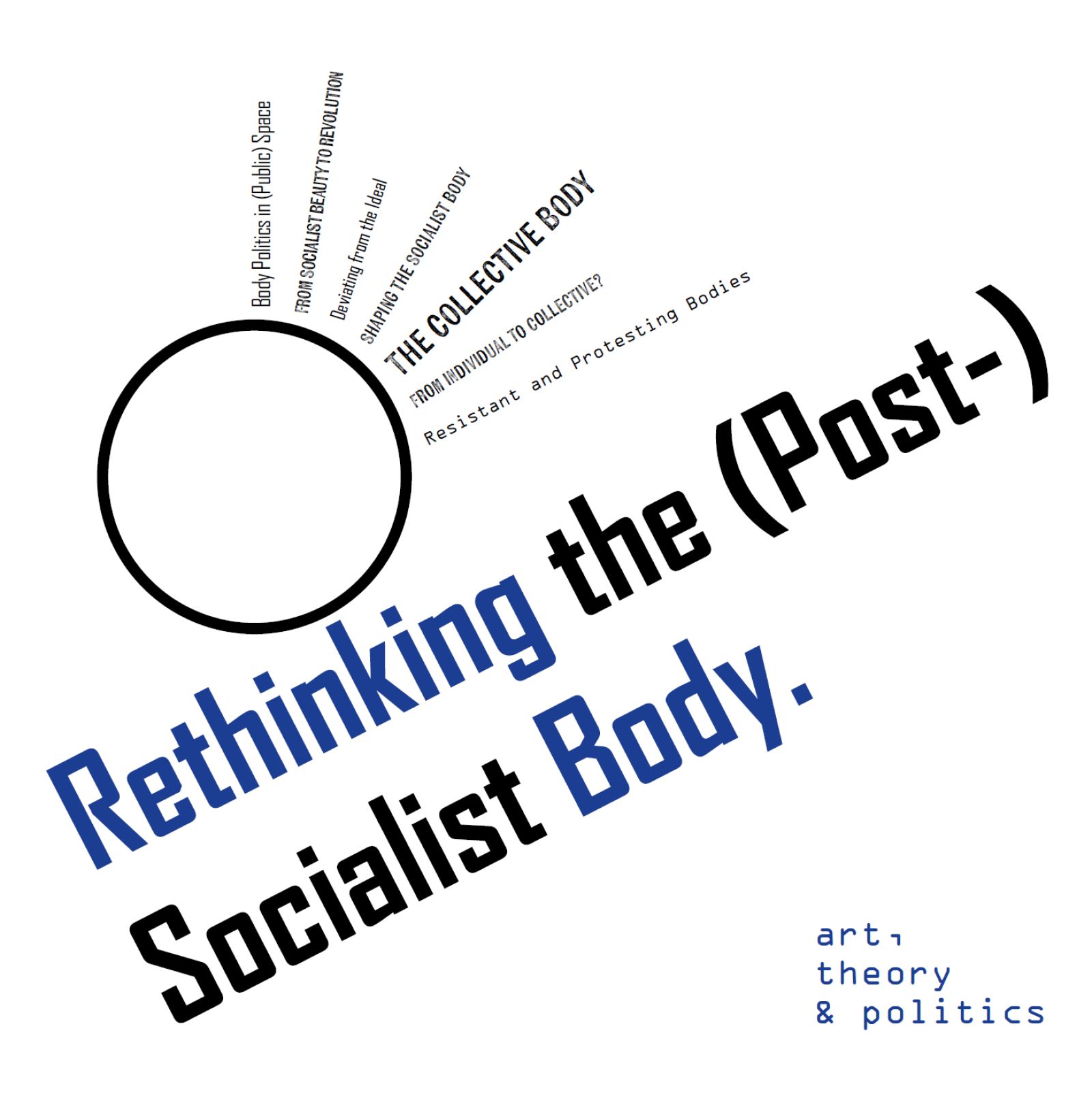Workshop
Rethinking the (Post-)Socialist Body. Art, Theory & Politics
Transdisciplinary workshop organised by Oliver Aas, Hana Gründler and Magdalena Nieslony

The importance of body politics is once again undeniable: the idealization or vilification of bodies on ideological grounds, restrictions on abortion rights, and the continued exploitation of migrant bodies and labor are global phenomena. Even though the body has long stood central to cultural, social and political struggles in Eastern Europe, these current phenomena also shed new light on the political meanings of the body and its representations in the former socialist countries of Europe. This is visible today in the return of the heroic body in the media iconography of the Ukrainian war as well as in women’s fight for bodily autonomy across different post-socialist countries. The question of the visibility or the invisibility of bodies – and the many degrees in between, up to what could be called a hyper-visibility – thus was and remains of central aesthetic, ethical and political concern. And it is not surprising that the body has, in great detail, also been a subject of art, philosophy, and literature.
Given how rich and complex the relationship between the body and visual culture in East-Central Europe is, we need to flesh out a novel reflection of body in its temporal, phenomenological, aesthetic, philosophical and political multiplicity. Thus, this workshop aims to revisit the (post-)socialist body in East-Central European art, discuss its relation to and transformation of well-established artistic and theoretical discourses and international networks as well as shed light on reflections and notions of the body in other disciplines – including philosophy, literature, ethnography and others.
Working through case studies that breach geographic and theoretical boundaries, ranging from the Baltics to Yugoslavia, the conference adds to the on-going conversation around the legacy of socialism by expanding the already accepted conceptual frames and theoretical foundations through which we have hitherto rendered the body legible.
Program:
THURSDAY, 28.9
14.30–15.00 WELCOME AND INTRODUCTION
Oliver Aas, Hana Gründler & Magdalena Nieslony
RESISTANT AND PROTESTING BODIES
Chair: Hana Gründler
15.00–15.45 ANJA FÖRSCHNER
‘Possibilities of Resistance’. Meje Kontrole št. 4 and queer Yugoslavia
15.45–16.30 EMILY CURTIN [ONLINE]
Bodies Lead the Way. Anti-Authoritarian Protest in Post-Soviet Belarus
(BREAK)
FROM INDIVIDUAL TO COLLECTIVE?
Chair: Hana Gründler
17.00–17.45 KAREL CÍSAR
The Body, the Thing and the Real. On Phenomenological Interpretations of Body and Corporeality in American and Czechoslovak Art of the 1970s
17.45–18.30 ANDRES KURG
Relations without Purpose. Communication and the Body in Late Soviet Architecture
FRIDAY, 29.9
THE COLLECTIVE BODY
Chair: Magdalena Nieslony
9.30–10.15 BILJANA PURIC
Revisiting the Collective Body in Contemporary Art
10.15–11.00 ANNA MARKOWSKA
Moving Over. Exercises for Recreating a Collective Body
(BREAK)
SHAPING THE SOCIALIST BODY
Chair: Matteo Bertelé
11.30–12.15 JOHANA LOMOVA
Imprint of Socialist Body. The Role of Czechoslovak
Artists in the Process of Humanization of Factory Work
12.15–13.00 AMIR SAIFULLIN
The Projectionist Theatre. Body-Images and Bio-Politics after the October Revolution
(LUNCH BREAK)
DEVIATING FROM THE IDEAL
Chair: Oliver Aas
14.00–14.45 TAMARA HUNDOROVA
Trauma, Body and Motherphobia in Post-Totalitarian Ukrainian Literature. The Postcolonial Aspect
14.45–15.30 INGRID RUUDI
Spaces for Deviant Bodies in Late and Post-Soviet Estonia
(BREAK)
FROM SOCIALIST BEAUTY TO REVOLUTION
Chair: Magdalena Nieslony
16.00–16.45 STEFANIE EISENHUTH
Negotiating Socialist Beauty. Body Politics, Gender, and National Identity in East Germany, 1950s-1980s
16.45–17.30 AGATA JAKUBOWSKA
Women Artist Facing the Socialist Sexual Revolution
SATURDAY, 30.9
BODY POLITICS IN (PUBLIC) SPACE
Chair: Julie Deschepper
9.30–10.15 SERAINA RENZ
Performing Individual and Collective Ethics of Resistance. The Body of the Yugoslav Monument
10.15–11.00 MÁTÉ CSANDA
The Družba and Its Afterlife – Bratislava‘s Freedom Square as Stage and Litmus Paper of (Post)Socialist Body Politics
(BREAK)
11.30–12.15 YARASLAVA ANANKA
From Vandalism to Voodoo, from Bust to Body. Iconoclasm and Maleficium in Contemporary Ukrainian War Culture
12.30–13.00 CLOSING REMARKS
CONTACTS:
Oliver Aas: oliver.aas@khi.fi.it
Aleksandra Dimitrova: aleksandra.dimitrova@khi.fi.it
Downloads
28. – 30. September 2023
This will be a hybrid event.
Venue
Palazzo Grifoni Budini Gattai
Via dei Servi 51
50122 Firenze, Italia
To participate online please register in advance via Zoom: https://eu02web.zoom-x.de/meeting/register/u50qc-yrrD4tG9S96p9uoRO3Qtb39pLikjuB
After registering, you will receive a confirmation email containing information about joining the meeting.
Hinweis
Diese Veranstaltung wird durch Fotografien und/oder Videoaufnahmen dokumentiert. Falls es nicht Ihre Zustimmung findet, dass das Kunsthistorische Institut in Florenz Aufnahmen, auf denen Sie erkennbar abgebildet sein könnten, für die Veranstaltungsdokumentation und Öffentlichkeitsarbeit (z.B. Social Media) verwendet, bitten wir um eine entsprechende Rückmeldung.


